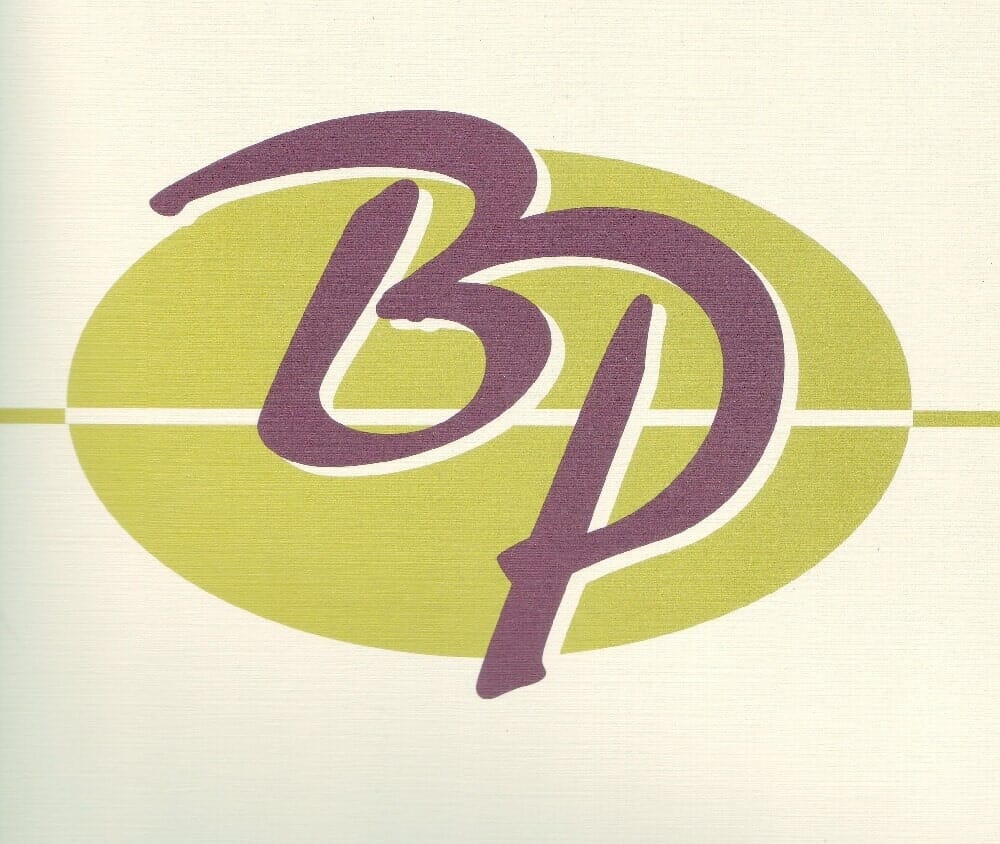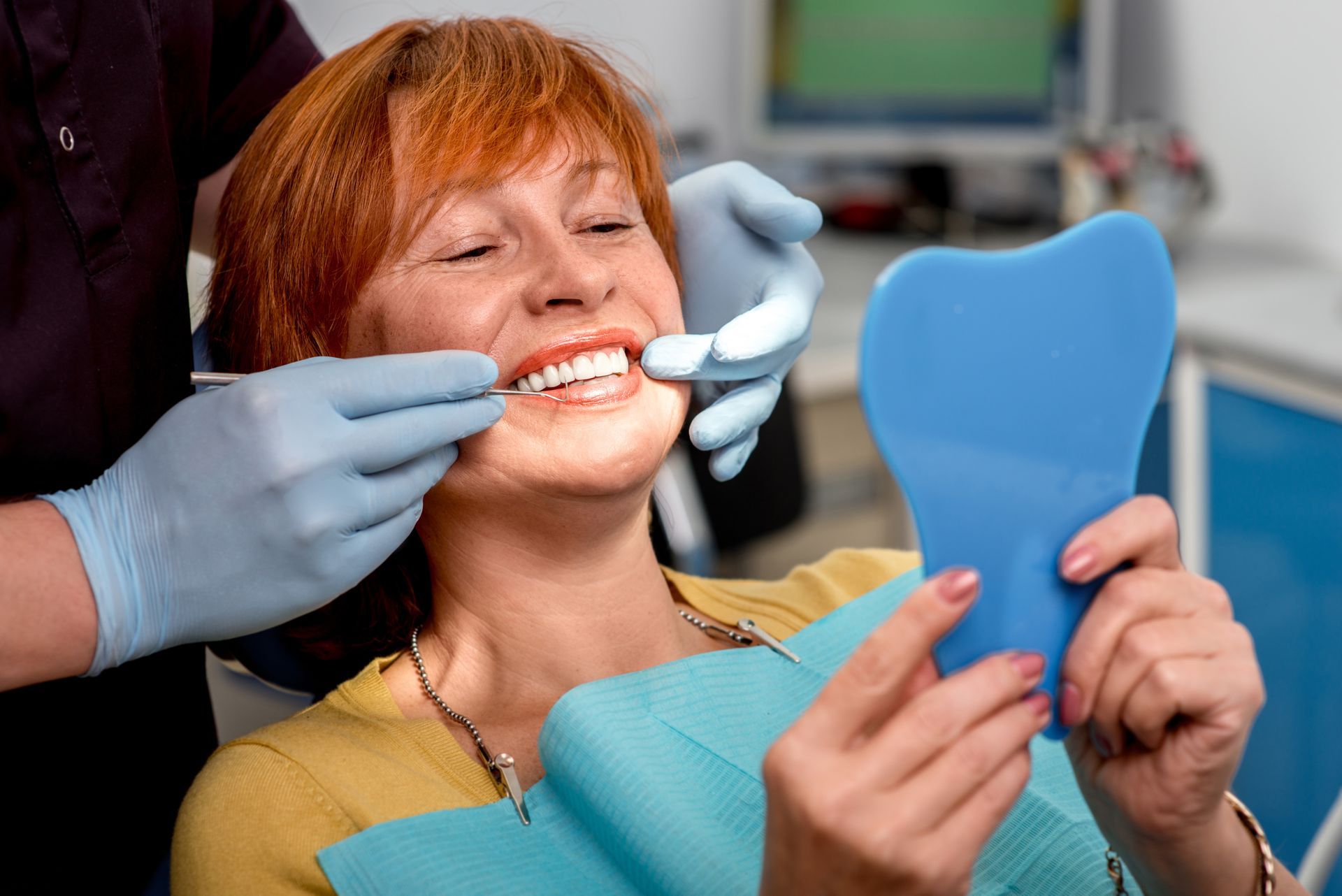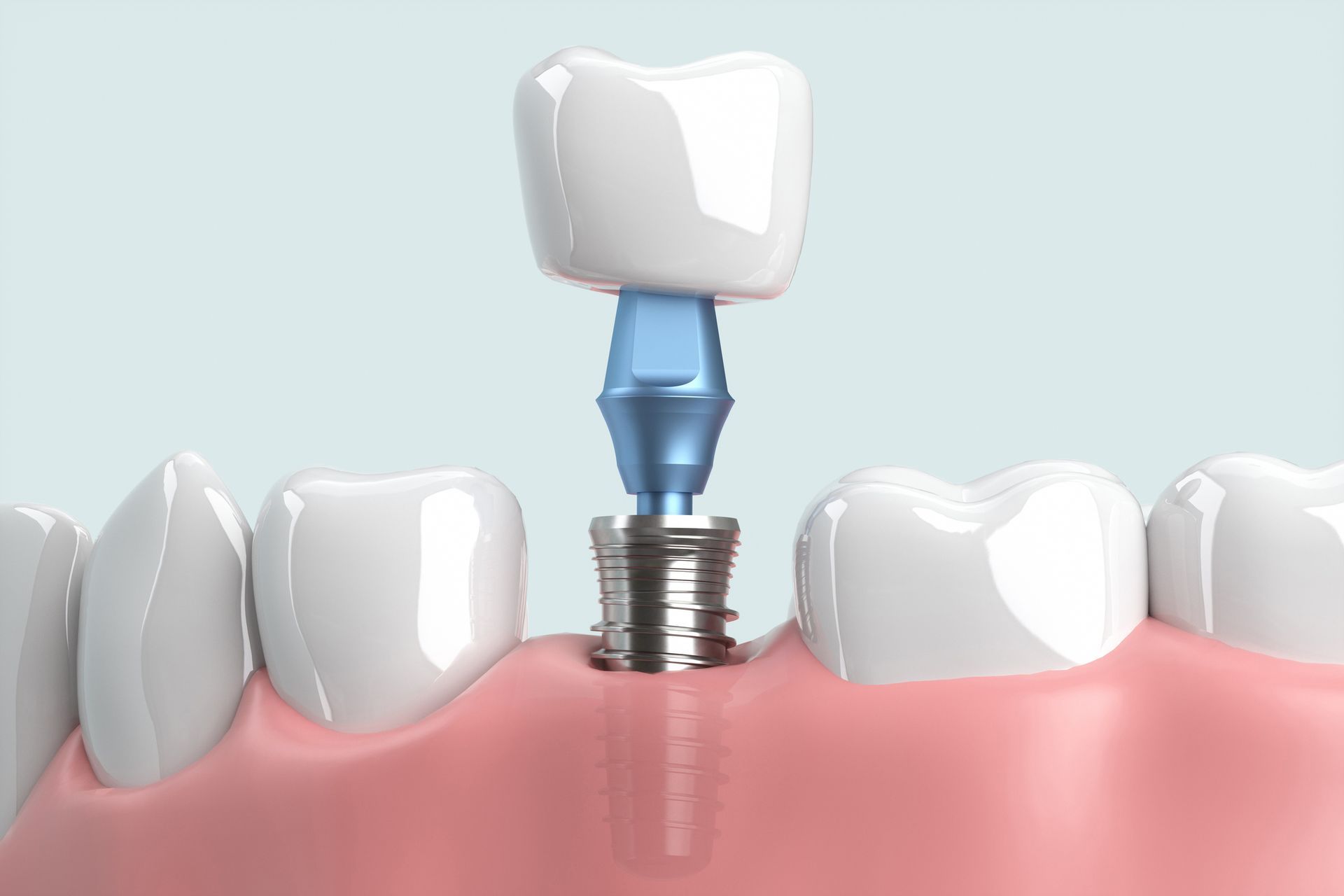4 TIPS FOR REDUCING DENTAL ANXIETY
- By Admin
- •
- 31 Mar, 2020

Going to the dentist is one of the most important ways to keep your teeth and gums healthy. However, many patients avoid the dentist because they suffer from anxiety. If you have avoided the dentist because of stress and fear, check out these four tips for reducing dental anxiety.
1. Talk to Your Dentist
If you have any anxiety about visiting the dentist, tell your dentist. A lot of your anxiety may be from uncertainty. This is more likely if you need to undergo a new procedure, such as root canal therapy. By explaining what will happen during the root canal procedure, your dentist may ease some of your anxiety simply by letting you know what to expect.
If you have children, you may be tempted to tell them what to expect yourself, but you should probably let the dentist describe upcoming procedures, such as fillings or extraction. Dentists have the training to explain dental procedures without alarming kids. Starting this conversation early can drastically help reduce your child's future dental anxiety.
2. Don't Forget to Communicate
Your dentist has all the training needed to care for your teeth, but they aren't you, so they can't feel what you feel. For this reason, you need to be able to communicate with your dentist (verbally and with hand signals). One reason for this is so you can signal pain. In most cases, one or two block injections is enough to fully numb the area.
However, if the procedure is invasive, or you bleed a lot during the procedure, you may need more Novocain or even an infiltration injection, which numbs a small, specific area of the tooth such as the very tip of a tooth root. You may also need to communicate if you have too much saliva or debris in your mouth.
3. Learn Relaxation Techniques
Many people experience anxiety, so many relaxation techniques are available that people use to calm their nerves inside and outside of the dental chair. One way to reduce some anxiety is to distract yourself with music. Some dental offices may even have TVs to show movies or shows to help take your mind off the procedure.
Anyone who has anxiety should also learn breathing techniques, such as counting your breath or inhaling slowly. While relaxing, try to focus on each part of your body individually, such as your forehead or shoulders. Not only will this better improve your relaxation, but it takes your mind off the procedure.
4. Ask About Sedation Dentistry
Finally, if your anxiety prevents you from going to the dentist, you may want to consider sedation dentistry. Sedation dentistry comes in several forms, but the most basic is inhalation sedation (aka nitrous oxide). While breathing a mixture of nitrous oxide, your body and mind relaxes, and once you stop inhaling, the effects go away.
More advanced forms of sedation dentistry include oral and IV sedation. These forms will leave you groggy after the procedure, so you will need to have a ride. All three are considered awake sedation because they don't cause you to fall asleep, but some patients become so relaxed they do fall asleep. The dentist will have no problem waking you, however, with verbal commands.
Dental anxiety can become severe enough to prevent patients from going to the dentist. Instead of getting necessary treatment, they let their oral health drop. However, you can ease dental anxiety in many ways, especially if your dentist offers sedation dentistry. If you would like to know more about dental anxiety and how to ease it, contact us at Bradley Piotrowski, DDS, MSD, LLC.
AREAS WE SERVE
- Alva
- Ave Maria, Florida
- Bonita Springs, Florida
- Cape Coral, Florida
- Estero, Florida
- Fort Myers Beach, Florida
- Goodland, Florida
- Lehigh Acres
- Lely
- Marco Island, Florida
- Naples, Florida
- Saint James City, Florida
- Sanibel Island, Florida
- Vanderbilt Beach, Florida
AREAS WE SERVE
- Alva
- Fort Myers Beach, Florida
- Naples, Florida
- Ave Maria, Florida
- Goodland, Florida
- Saint James City, Florida
- Bonita Springs, Florida
- Lehigh Acres
- Sanibel Island, Florida
- Cape Coral, Florida
- Lely
- Vanderbilt Beach, Florida
- Estero, Florida
- Marco Island, Florida
This web site is not designed to, and does not, provide medical advice. all content ("content"), including text, graphics, images and information available on or through this web site are for general informational purposes only.
The content is not intended to be a substitute for professional medical advice, diagnosis or treatment. Never disregard professional medical advice, or delay in seeking it, because of something you have read on this web site. Never rely on information on this web site in place of seeking professional medical advice.
Bradley Piotrowski, DDS, MSD, LLC is not responsible or liable for any advice, course of treatment, diagnosis or any other information, services or products that you obtain through this site. You are encouraged to confer with your doctor with regard to information contained on or through this web site. After reading articles or other content from this web site, you are encouraged to review the information carefully with your professional healthcare provider.
CONTACT INFORMATION
Address: 1044 Castello Drive, Suite 202, Naples, FL 34103
Phone:
(239) 263-6003
Email: drbradpiotrowski@gmail.com
Business Hours:
- Mon - Thu
- -
- Friday
- Appointment Only
- Sat - Sun
- Closed













